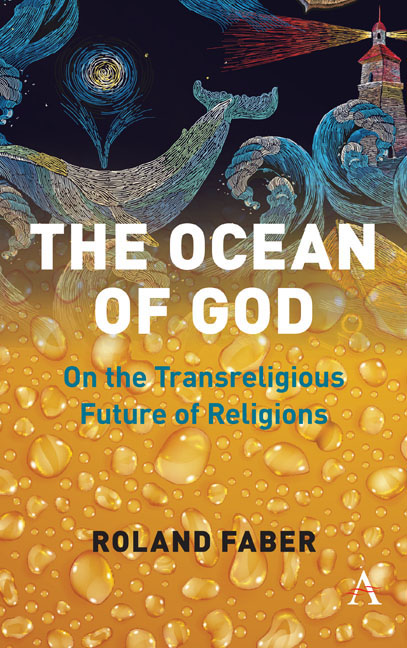Book contents
- Frontmatter
- Dedication
- Contents
- Introduction
- Part I Paradigms of Unity and Plurality
- Part II Negotiations of Multiplicity
- Chapter Six Convergences and Divergences: Juncture or Bifurcation?
- Chapter Seven Pluralism of Pluralisms?
- Chapter Eight Horizontal and Vertical Pluralism
- Chapter Nine An Experiment in Incompatibilities: Green Acre
- Chapter Ten The Mystery of Distinction and Unity
- Part III Transreligious Horizons
- Glossary
- References
- Index
Chapter Six - Convergences and Divergences: Juncture or Bifurcation?
from Part II - Negotiations of Multiplicity
Published online by Cambridge University Press: 09 July 2019
- Frontmatter
- Dedication
- Contents
- Introduction
- Part I Paradigms of Unity and Plurality
- Part II Negotiations of Multiplicity
- Chapter Six Convergences and Divergences: Juncture or Bifurcation?
- Chapter Seven Pluralism of Pluralisms?
- Chapter Eight Horizontal and Vertical Pluralism
- Chapter Nine An Experiment in Incompatibilities: Green Acre
- Chapter Ten The Mystery of Distinction and Unity
- Part III Transreligious Horizons
- Glossary
- References
- Index
Summary
The waves rising from this Ocean are apparent before the eyes of the peoples of the world and the effusions of the Pen of wisdom and utterance are manifest everywhere.
— Bahá’u'lláhSo far, we have had a look at the alternatives of current ways to engage with the unity and plurality of religions throughout a field of diverse traditions and schools of thought, of which the Bahá’í Faith was highlighted as current apt religious enunciation. We have traced their adoption of diverse systems of thought and spirituality and their respective solutions to problems involving not only religious diversity, but also opposition, warfare and strife— especially in developing pluralist models countering those problems with a deep appreciation for this manifold. Now, we will ask how the mediation of these conceptualizations of unity and plurality of religions (as proposed here) through the unique synthesis of its elements in the Bahá’í universe of discourse will contribute to a clarification of their inner problematic and to potential directions their contemporary understanding could and should take the discourse. So, how have Bahá’í authors found themselves involved with, and been challenged by, these discussions— especially with their emphasis on the unity of religions? In general, we find evidence for the following intentions of, and correlations in, a Bahá’í dialogue with religious pluralism.
Regarding the threefold matrix of alternatives responding to religious diversity, namely, exclusivism, inclusivism, pluralism, we can, first, observe that most Bahá’í scholars interested and engaged in this discourse have accepted the importance of refuting religious exclusivism as foreign to the Bahá’í writings. To the contrary, they would affirm that the Bahá’í writings unequivocally insist on the truth of a plurality of religions and, hence, they understand many religions as true expressions of the divine engagement with the world. What is more, they even denounce exclusivism as the most incriminating reason for the generation and persistence of religious violence. Second, we can also observe that most Bahá’í voices in this field affirm that religious inclusivism, although it might not be easily avoided, can only be of a very limited relevance.
- Type
- Chapter
- Information
- The Ocean of GodOn the Transreligious Future of Religions, pp. 69 - 80Publisher: Anthem PressPrint publication year: 2019



